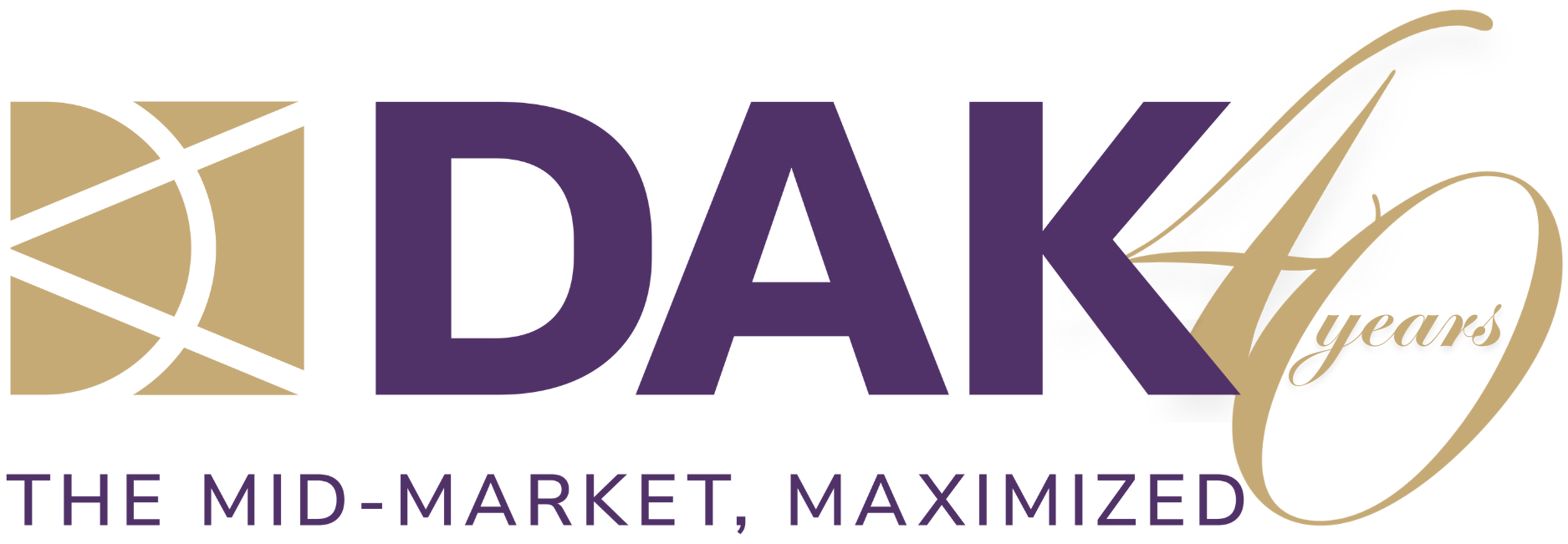In this episode on the EisnerAmper Podcast, DAK Group’s Chief Operating Officer, Milton Kahn, discusses his perspective on the M&D Environment with Travis Epp, Partner-in-Charge of the Manufacturing and Distribution Group.
Transcript
TRAVIS EPP: Hello, and welcome to the inaugural episode of the Manufacture and Perspectives and EisnerAmper Podcast series. I’m your host, Travis Epp, Partner-in-Charge of our manufacturing and distribution group. And this series will feature prominent leaders in the cannabis and hemp, consumer products, logistics and transportation, and food and beverage industries who will share their outlook and perspectives in these areas.
With me today is Milton Kahn, COO of DAK Group, a middle-market investment banking firm. As you are aware, the mergers and act acquisitions market is extremely hot and there are significant funds available for investors to invest in target companies. Milt, my initial question for you is, from your perspective as an investment banker, can you give us guidance on the current manufacturing and distribution environment?
MILTON KAHN: Sure. I’d be happy to.
First, thanks so much for having me on this podcast. From a mergers and acquisition perspective, manufacturing and distribution environment, as far as the deal flow is, if I use one word, it’s called robust, the EBITDA multiples are high as far as what the market is paying. The cost of money is still extremely low. There’s a high demand for great businesses. There’s also a high supply. There are a lot of businesses available for sale and that high supply allows private equity and other investors to be more selective and with the recent supply chain challenges, the US manufacturing and distribution companies are in more demand today than they were even just a few years ago.
TE: So Milt, you indicated there’s a lot of companies that are interested in possibly selling their businesses, who are the current sellers in the marketplace that you are seeing?
MK: What we’re seeing since we’re dealing in the middle-markets are baby boomers who are operating either businesses that they began, in some cases it’s second-generation businesses, and there’s some third and even believe it or not fourth-generation businesses that are currently exploring and going to market or in market. The COVID situation has really worn out a lot of the baby boomers. They do not want to go through it again. They are ready to accept the pricing that is out there. They’re accepting it a lot easier than they did pre-COVID. They’re just tired and want to either retire or slow down. Most of these businesses do not have next-generation that either want to be involved in the business on a long-term basis or the current senior members of the family believes that the junior members of the family are not capable, so they don’t want to risk a family fortune and they would rather bring the companies to market and cash out.
And so that the family has the liquid net worth to invest a little bit differently. Also, what we’ve seen in general is that the average age of the business owner that wants to sell has gone down. It used to be that people started their business, kept it, and a lot of them kept it until they died. People just aren’t doing that anymore. And also a lot more young people are selling their businesses earlier because they are interested in doing something else or having a challenge of building up another business.
TE: Milt, my observations are very consistent with what you’ve just expressed. The term I would use is also fatigue. A lot of these middle-market companies have had to face so many issues in the last couple of years. As you mentioned, COVID came along the supply chain challenges, the challenges in getting raw materials, getting container ships, the price increases, the recent inflation, the tax uncertainties. It’s just a significant challenge for middle-market businesses and I think they’re just ready for that next step. So as we prepare for the other side of the equation, who are you seeing as a buyer in today’s marketplace?
MK: From our experience pre-COVID, the majority of the transactions buyers were strategic, both US and foreign. Currently, let’s call it the post to COVID I hope, has switched where the majority we see now are private equity groups, PE groups. They are looking for platform acquisitions, which are typically the larger transactions, and once they complete their platform acquisition, they’re looking for smaller add-on transactions. So the market is right, both for the larger businesses and the not so large businesses.
TE: Milt, I was at a presentation yesterday by one of my colleagues, Tony Metaphor, who leads our private equity group. And in his commentary, it was again consistent with what you have said, the amount of money that private equity funds have been able to raise and have available for investment is significant. And that will definitely impact who the buyers are of these companies for sale. So as a company considers selling itself, what are the obstacles that are generally presented to a selling company?
MK: The one thing business owners need to understand especially in the PE world, the work involved in successfully completing a small transaction is the same as a large transaction. So the PE groups are leaning more towards the larger transactions. The obstacles today, a lot of them you mentioned a few minutes ago, the supply chain, transportation issues, getting materials or goods, the cost of the materials and the goods and also the hot topic today is employees. Tracking new employees, retaining current employees is just challenging and you just have to do business differently today than you did in the past. But those are the basic obstacles today.
TE: Milt, I’m glad you highlighted the issue that is so important to the manufacturing distribution industry. It is the availability of employees and the resource challenges that many middle-market businesses have. Can you indicate how this may impact some of the issues that arise during a transaction? For example, one concern may be key employees continuing on through the business. So could you address that, please?
MK: Absolutely. You know, some of the real-life issues that we face and in most of these issues we do our due diligence upfront and ask the questions. Sometimes we get fooled on deals. Having employees is one thing. Having legal employees is another, and especially in the New Jersey manufacturing, there are many employees who appear to be legal and aren’t and employers as a general rule, feel as long as they get a social security number, which they feel is valid and they get an I-9 filled out that they’re covered. And I guess legally they are. But what happens during due diligence is that the buyer will do substantial due diligence on that topic and it’s very easy to find out with technology today, which employees are legal and which ones are not. And we’ve faced a couple of situations in recent years where deals just get put on hold because of that issue.
One of the other real-life concerns is customer concentration. What I’ve always noticed is the companies that have the highest customer concentration are usually the most profitable yet due diligence and as the deal progresses, it becomes more and more of a concern, especially for private equity groups who are worried about losing that one customer. The business owner is used to it. They don’t lose sleep over it because of the relationships, but somebody new coming in is very, very much concerned with customer concentration. Those businesses that don’t have the concentration, it’s easier to make a deal just like customer concentration supply chain, vendor concentration can be a concern. Any distribution company that relies on over the past year of their livelihood was importing merchandise from China or the East, they have issues. And during due diligence that is looked at very, very closely by the buyer.
One area that most people are surprised, especially for the larger companies that get looked at during the due diligence process in the IT controls and cyber security concerns. One of the areas that businesses who are looking to sell should really look at is their IT systems, their security controls, and if necessary, have cyber audits or cyber security assessments, IT assessments perform to make sure they’re ahead of the problem and solve the problem before due diligence hits. Another area of equal concern is tax planning. No matter how many times we ask our prospective clients is your estate planning done? Have you done the gifting? Have you used grants or whatever other mechanisms are available out there and initially they, yeah, I’ve dealt with that and many times during the process, when owners finally realize how much money they’re going to receive, all of a sudden, tax planning and estate planning becomes important to them where they didn’t really pay as much attention to it beforehand.
The planning must be done before an offer is made. Once an offer is made, it’s very, very difficult to do any sophisticated planning. Also, one of the areas that are concerning to buyers comes about when we have our management meetings when our client meets the perspective buyer. I use the term to me or I versus we type person in an organization and the business owners that respond to everything is me and I, and not use we are really telling the prospective buyer that they don’t have a great matter management team. And as you mentioned before, Travis, having a great management team and having the business owner not be as important to the business is a real deal maker, not having that can be a real deal killer.
TE: Milt, thank you for those comments. Two other observations I would like to make from my experience, I’ve seen it before where an entity that’s looking forward to selling its business will interview various investment banking firms and the one they choose is the one that gives them the highest selling price, even though that may not be realistic. So that’s just one thing that I would suggest that prospective sellers be aware of. They should be realistic in what the potential selling price may be.
MK: I absolutely agree with that. One of the things that we require is that we are aligned on that topic with our prospective client. If we are not aligned, then we just don’t take the transaction on, it’s that simple.
TE: A second area I would like to highlight is that we have the fortune of seeing companies that have been very successful over a number of years and have grown their business operations so that their businesses across the country, as well as internationally. However, in times of a transaction, one thing that a potential seller we always advise is to be aware of what your nexus footprint is, be prepared to address any state and local tax issues that may come up during due diligence because if they come up at that time, there will likely be delays or impediments in closing the transaction. So that’s an example of one leading cause of a deal failure. Are there other examples of deal failures that you might like to highlight Milt?
MK: The due diligence process is a big concern for a lot of business owners. And the reason for it is that they don’t really understand the process and they’re not prepared for the process. It can become overwhelming and upsetting to the business owners because due diligence is a very detailed cumbersome process. And one of the frustrations that the business owners have, I call it the Colombo syndrome, for those who remember the show Colombo, Peter Fork was a detective and he always said, I have one more question and then he would answer that. And then they say, I have one more question and that just kept going and going. And that’s what happens during due diligence and you have to be prepared for it and control your emotions to actually deal with that.
One of the other causes of failure for deals just to drag on is not having complete and accurate financial information. Having ordered financial statements for multiple years prior to a sale by a reputable and recognized CPA firm. I can’t tell you how valuable that is to set the tone right at the beginning of negotiations. It’s just very different from having financial statements that are not audited. One of the reports that’s become very popular is the quality of earnings reports, typically these qualities of earnings reports were a requirement by the buyer. They call it buy side quality of earnings and what’s happening more and more is the sellers of the business are having a quality of earnings reports prepared before they go to market. So they set the proper expectations of what’s going to happen as far as to deal pricing and what’s going to be required during due diligence.
The two major causes of deal failure though, would be number one time, and all I can say is just look back in recent times as far back as 9/11, any deal that didn’t close by September 10th and in that year, more than likely was put on hold or did not occur and that was strictly a time consideration. And looking more recently at COVID, the deals that closed before COVID, people were very happy and there are a number of deals that fell through because of market changes and demand for the product that was manufactured or distributed. And waiting is usually not a good thing. So I would suggest that once people are involved in a deal, they make it a priority and get it done.
On the other hand, sometimes time will help a deal. A new customer is retained, the profits go up. So time can be to an advantage, but most of the time it’s not. And then the biggest cause of failure is greed. Many times we’ll give them our opinion on what their business is worth and if we do our job right, and the market conditions cooperate, the price many times is higher. Yet, there are always individuals and business owners who get greedy and think they can push and push, and they don’t realize or believe that the buyers, especially to private equity groups, no matter how much money they invest in getting a transaction done, they don’t have to do the deal. And at some point, enough is enough and they have to make a decision. So getting greedy is a problem with many and those who are fair, get the deals done. The ones that are greedy, generally fail.
TE: In closing, I would like to thank Milton Kahn, COO of DAK Group for joining us today. As illustrated, there are many complexities and considerations in closing a transaction. And thank you for listening to the inaugural episode of the Manufacts & Perspectives and the EisnerAmper Podcast series.






